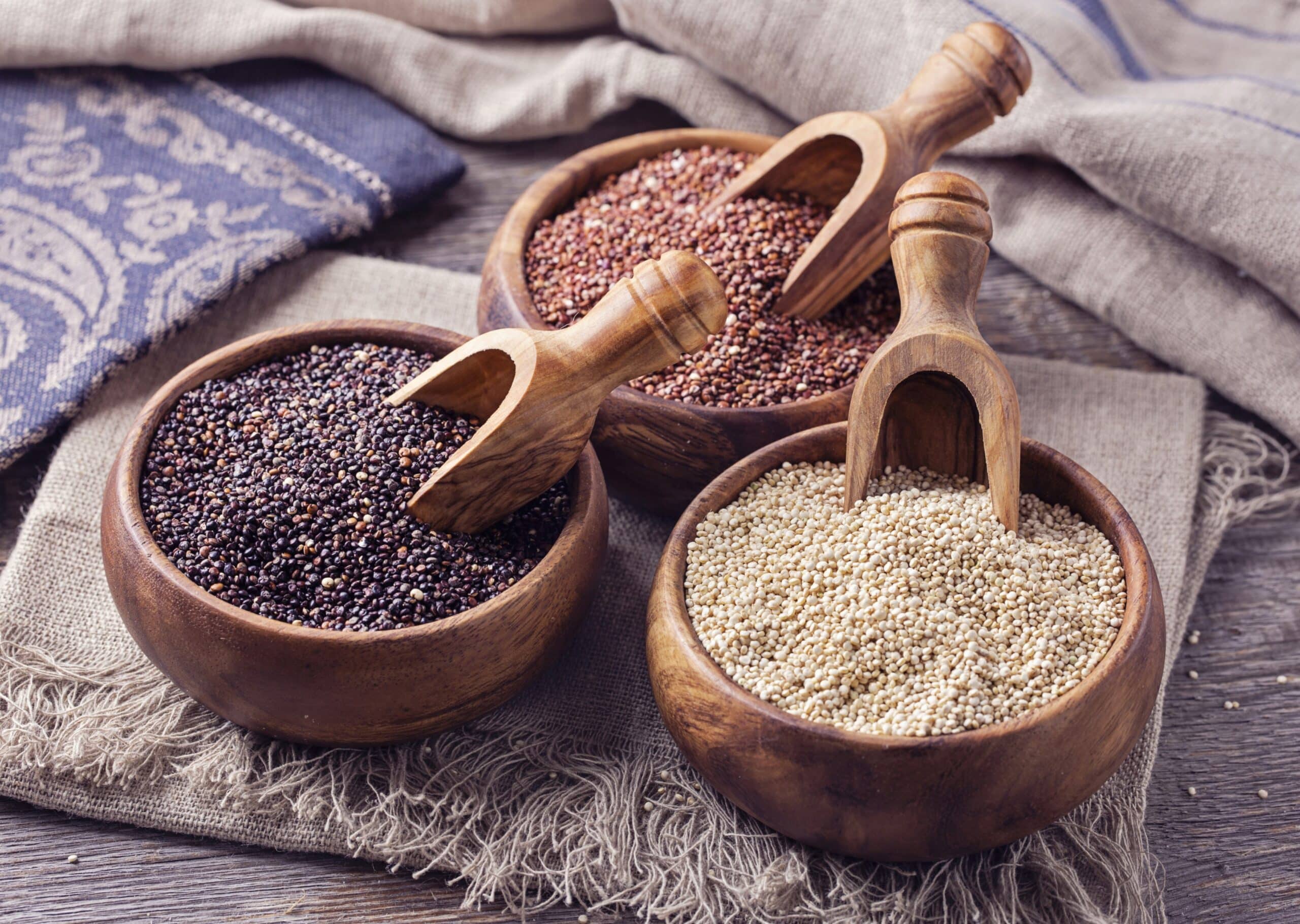Quinoa is gluten free. However, check the packaging to ensure that the product was not contaminated by being grown, processed, or cooked with gluten containing grains such as wheat or barley that may contaminate the seeds.
Quinoa is considered to be a whole grain, which unlike refined grains remains intact and is not processed/stripped of its nutrient rich bran and germs. It is recommended that at least half the grains you eat each day should be whole grains by the USDA because they provide important nutrients such as the B vitamins, fiber and minerals. For those who are gluten free and miss out on whole grains, quinoa can step in to help fill the void.
Quinoa is considered to be a complete protein as it contains all 9 essential amino acids, and this plant protein powerhouse packs about 8 grams of protein per cup. Adding this ancient grain to your diet supplies plant based protein sources that will ensure optimal balance of amino acids to meet the body’s needs.
While all grains are a good source of fiber quinoa packs more bang for your buck, packing 5 grams of fiber per one cup as compared to a slice of whole wheat bread containing 2 grams of fiber. Fiber is best known for promoting regular digestion, but it can help with more that relieving constipation as it also has cardioprotective effects that will help to lower cholesterol and lower high blood pressure.
Quinoa is rich in iron providing 3 milligrams of iron per one cup, depending on gender and age between 8-18 milligrams of iron is recommended per day. The body requires iron for the proper function of hemoglobin that transports oxygen in the blood to cells throughout the body, and is necessary for neurotransmitter synthesis, regulation of body temperature, enzyme activity, and energy metabolism.
One cup of quinoa contains 118 milligrams of magnesium, that is about 25% of the daily recommended value which will help to relax blood vessels and may help to reduce type 2 diabetes by promoting healthy blood sugar control. Magnesium deficiency is linked to insomnia, muscle cramps and headaches while benefits include body temperature regulation, energy production, formation of healthy bones and teeth, detoxification, as well as transmission of nerve impulses.
One cup of quinoa provides 1.2 milligrams of manganese, that is over half of the daily recommendation of 2.3 milligrams which will help with wound healing and bone development. Manganese is an antioxidant which is important to anti-aging as it helps to maintain healthy mitochondria during energy production and protect cells from free radical damage.




